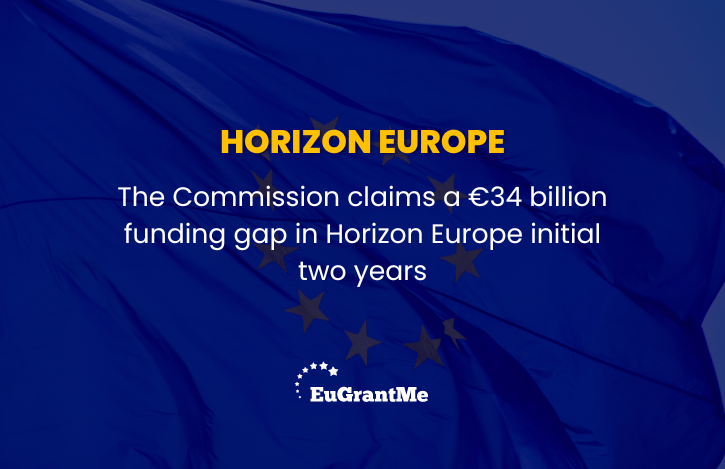The European Commission’s report highlights that Horizon Europe’s initial funding of €95.5 billion fell short by €34 billion to back high-quality proposals from 2021 to 2022.
Of all the high-quality proposals, 71% did not receive funding. This demonstrates a slight improvement when compared to the previous framework program, Horizon 2020. In Horizon 2020, 74% of high-quality proposals remained unsupported.
Concurrently, there is a growing list of challenges. These challenges range from the need for innovation to accelerate the green and digital transitions. Additionally, there is a focus on ensuring the EU’s strategic autonomy in the global technology race.
Maintaining technological leadership through Horizon Europe will be crucial in upholding the EU’s geopolitical influence. The report highlights that “a strategically autonomous EU accounting for 30% of global R&D is a very different prospect than a strategically autonomous EU responsible for 20% of global R&D.”
Horizon Europe’s initial funding remains a significant topic of discussion. There is still a chance to redirect Horizon Europe. During the first two and a half years, the EU has spent slightly over €16.3 billion from the seven-year program, awarding over 5,500 grants. Additionally, the selection of 7,108 proposals for funding has occurred. However, as of the latest figures by the end of 2022, a considerable portion of the budget still requires allocation.
The report serves as the foundation for initiating changes. These changes are based on an analysis of Horizon Europe’s initial three years. It is accompanied by an evaluation of the role of research in addressing future challenges.
This report sets the stage for a plan outlining the trajectory of Horizon Europe for its final years, 2025-2027, which is scheduled for publication in the first quarter of 2024. It will be accompanied by initiatives such as new industrial partnerships.
Strategically Advancing Forward
Researchers have conveyed to the Commission their prioritization of climate change, energy supply, and biodiversity loss. They believe these issues should take precedence in the latter part of Horizon Europe.
According to a survey results, 90% of respondents identified climate change as a top priority for the coming decade, followed closely by 88% who highlighted energy supply, and a close percentage expressed concern about biodiversity loss. Additionally, respondents emphasized the importance of healthcare, global industrial leadership, preparedness for disruptions, and social justice as high-priority challenges.
However, it is anticipated ongoing uncertainty and volatility in the near future. The Commission’s goal is to ensure the bloc’s readiness to manage unexpected crises and adjust to shifts in the global order.
Yet, some caution against excessively constraining research topics. Julien Chicot, senior policy officer at the Guild of European Research-Intensive Universities, raises concerns. He suggests that an excessive focus on strategic issues might limit room for curiosity-driven research. Such research has historically played a crucial role in solving global challenges. An example is the recent COVID-19 pandemic.
A multipolar world
The report recognizes the changing dynamics of global geopolitics, stating that the new world order is likely to be multipolar. It presents three potential scenarios:
Closer collaboration among nations to address global issues;
The formation of “antagonistic groups” with limited collaboration; or
The emergence of openly hostile powers.
The supposition is that the poles of influence will likely be formed by the US, China, Russia, and the EU.
EU’s scientific power
The EU continues to be a dominant force in the scientific community, generating 20% of the world’s scientific output despite representing only around 6% of the global population.
However, China, the EU, Japan, and the US collectively account for 80% of new patent applications. These are filed under the Patent Cooperation Treaty (PCT). The EU’s share has been declining over the past two decades.
In the year 2000, the EU accounted for 31% of global patent applications, but this figure dropped to 19% in 2018. Similarly, the US witnessed a decrease from 38% to 22%, highlighting China’s growing technological advancements in this century.
Regarding innovation, results from the 2022 European innovation scoreboard show that the EU ranks as the fifth top performer globally.
When it comes to R&D intensity (expenditure on research and development as a percentage of the gross domestic product, GDP), the EU has made progress, increasing from 1.81% of GDP to 2.32% over the past two decades.
However, the EU still lags significantly behind countries like Israel (5.4%), South Korea (4.8%) the US (3.5%), Japan (3.27%), and China (2.5%).

At EuGrantMe, we are passionate about fostering innovation and empowering ambitious minds to flourish. Our mission revolves around providing top-notch grant writing services for the EIC Accelerator and Horizon grants in Europe, enabling our customers to unlock the full potential of their groundbreaking ideas.
Do you have a project to turn into reality?

